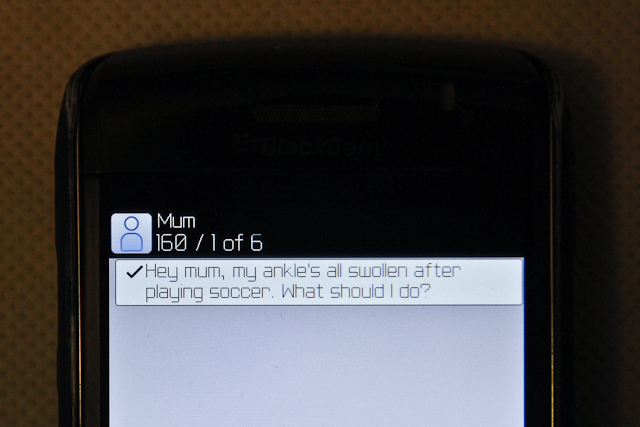Who would you seek help from in times of trouble?
Who would you seek help from in times of trouble?
Several years ago, a group of students from China, who were studying at a secondary school in Melbourne, were on a tram in Victoria Parade very close to St. Vincent’s Hospital. One of them suffered a severe stroke. Not knowing what to do, his friends helped him off the tram and called a friend in China who had previously studied in Melbourne. This friend told them of the only appropriate hospital he knew of, the Alfred Hospital. They called a taxi and took the sick student across several suburbs to the Alfred Hospital.
Fortunately this student did live and finally regained his health, but if the students had called the emergency phone number provided by their school, he could have been taken directly to St. Vincent’s Hospital and help could have been provided for him much sooner.
Local knowledge is very important in dealing with any emergency.
Under the ESOS Act and the National Code associated with it, your education provider (university, college, school, foundation program etc.) must have a number for you to call in such an emergency. Do you know what it is? It was probably given to you at your orientation program in the first weeks after you arrived in Australia. You were given so much information at that time you have most likely forgotten it or lost the card you were given with it on. Check the website of your education provider or with the international office or your international student advisor to find out what it is.
In 2005, I conducted a survey among the international students with whom I worked about their use of the Australian medical system. One question I asked was who students would turn to for help and advice for treatment for a number of medical problems. I was concerned that many students did not seek immediate treatment from a doctor or a hospital.
More than 20 per cent of students said they would seek help and advice from their parents, siblings or friends not in Melbourne if they had a suspected broken arm; and around 45 per cent of students said they would do the same if they experienced frequent headaches.
Some of the Overseas Student Health Cover providers have a 24-hours-a-day helpline where students who call can receive advice from a doctor or a nurse. This is particularly helpful if you become ill during the night and you are not sure what to do, or if you are not sure whether an ambulance should be called to a friend who is injured or very sick. Do you know whether your Health Cover provider does this? If they have such a service, do you know the number to call?
For all problems relating your studies or your visa, the best person to see is at your education provider. Do not rely on friends and relatives for advice. Things may have changed since they last studied in Australia and they may not have the full picture.
From 2007 to 2009, I was the President of an organization called the ISANA International Education Association. The members of this organization are those who provide support for international students in all sorts of educational institutions and academics who do research related to the welfare and support of international studying in Australia and New Zealand. The jobs done by these members have many titles, including international student advisor, international student officer, student welfare coordinator. People who provide accommodation for international students and some who work for the companies that provide Overseas Student Health Cover are also members. All these people care greatly about the welfare and support of international students.
ISANA consults regularly with the appropriate government departments at both federal and state levels. We have also developed, using money provided by the government, a number of guides for international students. A series of short animated videos about the consumer rights of international students can be found in the Student Education Section at www.isana.org.au. The website of your education provider should be the best place for your to find information about local services and safety issues as it will contain local information. However, if you do not find it helpful, it would be worthwhile you checking the Rainbow Guide which is also found on the ISANA website.
There are a number of sources of help and advice available to you. Make sure you understand how to access them all now. Waiting till something goes wrong could result in a delay in you being able to receiving the necessary help and advice or in you turning to a source that does not have the appropriate local knowledge.
Dr Felicity Fallon has extensive experience in both the pastoral care, monitoring, and general support of and the teaching of international students, particularly younger international students studying in Australia. She was the director of student welfare at Trinity College Foundation Studies Program for seven years, and president of ISANA International Education Association from 2007 to 2009.


